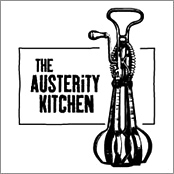
One of the best ways to judge a book is by its cover.
Here are some of the better book covers of the year, as selected for the New York Times by “people in an around the world of graphic design.”
I love John Gall’s cover for Houellebecq’s latest (slide 1) and Keith Hayes’ design for Bloodland (slide 13). I also like slides 4 and 18, but many of the other covers bored me somewhat. One of my least favorite is slide 6, for Chris Ware’s Building Stories, chosen, as it turns out, by the very same John Gall whose own designs I adore. What do I dislike about it? The tricksy but depthless cartoonishness of it, as opposed to the cartoon-like mystery of the Houellebecq. I can see that it’s good, but I don’t love it. I like a book design to contain some element of worry. But so many people have recommended Ware’s book that I will read it anyway.

The amazing thing here is that the derivatives market is now so much bigger than the “real” market, that it has gone ahead and purchased it. The transactions abstracted from the reality of the marketplace are now more important than the marketplace itself. It’s kind of like when The Simpsons became a bigger mainstream hit than the sitcoms it was satirizing, or when the deepest level down in Inception turned out to matter more to reality than reality.

Hosed: Conservatism and the Return of Pantyhose
Bare legs—at least according to the Hollywood Reporter, which, well, whatever—are now beginning to look “tawdry” and “cheap.” So let me get this straight: Pantyhose was once thought dowdy, and now appearing without it might be tawdry. Virgin/whore, anyone? Between the association of bare legs with “cheapness” and pantyhose with somewhat conservative fields and regions, I’m actually wondering if there is some sort of connection between pantyhose and conservatism, even if most of its wearers—like myself—don’t consciously think of it that way. I wore it in earnest for years and still do, but at least now I can play it up as a sort of “retro” thing à la Mad Men—a show that was born from America’s conflicted relationship with conservatism.
Certainly one of the complaints against pantyhose—that it looks like one is trying too hard—registers with this line of thought. “Trying too hard” can take a lot of different forms, but it has immediate associations with a sort of over-the-top femininity that goes hand-in-hand with the conservative “let women be women again!” mind-set.

The Hinterland: A Travelogue, Part 2
There’s a time for precision, he went on. And there’s a time to stay whole. Sometimes they aren’t the same time. Just remember this: it’s subtracting from another whole that will doom you. You could never be partial, because you weren’t that from the get-go. You know that. But you could become less. So know that. Unwhole. Do you know? (He didn’t wait.) Taking a part of something else that deserves to be whole or to be allowed the chance to fall away into nothing, to take that part like it was an entire partial, I mean, hell, partials, do what you want with them, they flit anyway, go ahead and stitch them together, use them as a jack to change a tire, whatever, make a demi-scarf, fist them like hollow doghouses. But to subtract something from a whole and add it to yourself… No, that’s what we can never allow. He had the gun out yet again, for good easure, as he always did when we hit this topic, and on every point of emphasis, it swung just a touch too far in its expressive arcs and scraped lightly on the glass. Because that’s what separates us…
Yes, I said. The subtraction. That.
The Hinterland: A Travelogue, Part 3
I wondered also if Spinoza had actually displayed his little placard, would he have bothered to put on trousers or just compounded the situation by appearing in his dressing gown, his long glass-dusted legs gleaming in the sun like the armor of the righteous? Then I just listened to my eyes reddening. By degrees. Click. Click.
It sprawled out inside of me as best it could and composed, keening:
I
am
LA,
&
Every part
of me is
40 minutes
from every other
part of you.
Nope, I said, we are not. Not so fast. Or yet.

“Food provokes an internal pleasure: inside the body, enclosed in it, not just beneath the skin, but in that deep, central zone, all the more primordial because it is soft, tangled, permeable, and called, in a very general sense, the intestines.”
— Roland Barthes
